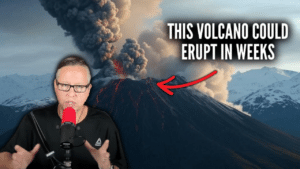Russian President Vladimir Putin has warned NATO alliance leaders that a move to lift restrictions on Ukraine’s use of longer-range Western missiles to strike deep inside his country would be considered an act of war.
“This will mean that NATO countries – the United States and European countries – are at war with Russia. And if this is the case, then, bearing in mind the change in the essence of the conflict, we will make appropriate decisions in response to the threats that will be posed to us,” Putin told reporters on Thursday.
Putin’s comments come as US and NATO allied partners appear increasingly open to the possibility of allowing Ukrainian forces to use Western-provided long-range weapons systems to strike at Russian military targets, something which Kyiv has openly pressed for as the war continues deep into its second year.
During a recent visit to Kyiv, US Secretary of State Antony Blinken offered the strongest suggestion yet the White House was considering lifting restrictions in line with a broader strategic shift among NATO partners.
“From day one, as you heard me say, we have adjusted and adapted as needs have changed, as the battlefield has changed, and I have no doubt that we’ll continue to do that as this evolves,” Blinken said, while speaking alongside Ukrainian Foreign Minister Andrii Sybiha and Britain’s Foreign Secretary David Lammy.
The UK’s prime minister, Keir Starmer, arrived in Washington Friday for talks with US President Joe Biden that are expected to center on the use of Western weapons against targets in Russia.
Although the US has adjusted its policy to allow limited cross-border strikes into Russia using US-provided weapons, US President Joe Biden has yet to approve the use of longer-range systems. US officials have previously expressed concerns that allowing Ukraine to strike deep inside Russia could escalate the conflict.
Before those discussions, Russia’s security service, the FSB, revoked the accreditation of six British diplomats in Moscow and accused them of spying, without providing evidence. Britain later said the expulsion occurred last month and called the accusations “completely baseless.”








